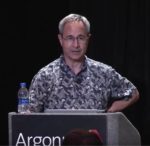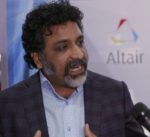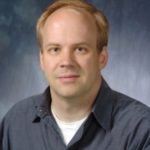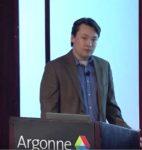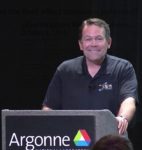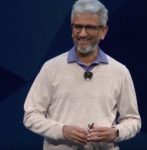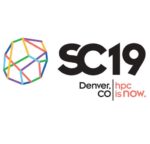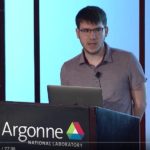In this video from ATPESC 2019, Rob Schreiber from Cerebras Systems looks back at historical computing advancements, Moore’s Law, and what happens next. “A recent report by OpenAI showed that, between 2012 and 2018, the compute used to train the largest models increased by 300,000X. In other words, AI computing is growing 25,000X faster than Moore’s law at its peak. To meet the growing computational requirements of AI, Cerebras has designed and manufactured the largest chip ever built.”
Altair PBS Works Steps Up to Exascale and the Cloud
In this video from SC19, Sam Mahalingam from Altair describes how the company is enhancing PBS Works software to ease the migration of HPC workloads to the Cloud. “Argonne National Laboratory has teamed with Altair to implement a new scheduling system that will be employed on the Aurora supercomputer, slated for delivery in 2021. PBS Works runs big — 50,000 nodes in one cluster, 10,000,000 jobs in a queue, and 1,000 concurrent active users.”
Theta and the Future of Accelerator Programming at Argonne
Scott Parker from Argonne gave this talk at ATPESC 2019. “Designed in collaboration with Intel and Cray, Theta is a 6.92-petaflops (Linpack) supercomputer based on the second-generation Intel Xeon Phi processor and Cray’s high-performance computing software stack. Capable of nearly 10 quadrillion calculations per second, Theta enables researchers to break new ground in scientific investigations that range from modeling the inner workings of the brain to developing new materials for renewable energy applications.”
Video: I/O Architectures and Technology
Glenn Lockwood from NERSC gave this talk at ATPESC 2019. “Systems are very different, but the APIs you use shouldn’t be. Understanding performance is easier when you know what’s behind the API. What really happens when you read or write some data?”
The Coming Age of Extreme Heterogeneity in HPC
Jeffrey Vetter from ORNL gave this talk at ATPESC 2019. “In this talk, I’m going to cover some of the high-level trends guiding our industry. Moore’s Law as we know it is definitely ending for either economic or technical reasons by 2025. Our community must aggressively explore emerging technologies now!”
Argonne-led team wins SCinet Technology Challenge at SC19
An extensive collaboration led by Argonne won the Inaugural SCinet Technology Challenge at the SC19 conference by demonstrating real-time analysis of light source data from Argonne’s APS to the ALCF. “Accelerator-based light sources — large-scale instruments used to investigate the fundamental properties of matter — generate large amounts of data that require computational analysis. The Argonne team won by designing an innovative method to support such investigations.”
Intel HPC Devcon Keynote: Exascale for Everyone
The convergence of HPC and AI is driving a paradigm shift in computing. Learn about Intel’s software-first strategy to further accelerate this convergence and extend the boundaries of HPC as we know it today. oneAPI will ease application development and accelerate innovation in the xPU era. Intel delivers a diverse mix of scalar, vector, spatial, and matrix architectures deployed in a range of silicon platforms (such as CPUs, GPUs, FPGAs), and specialized accelerators—each being unified by an open, industry-standard programming model. The talk concludes with innovations in a new graphics architecture and the capabilities it will bring to the Argonne exascale system in 2021.
SC19 to Host BoF Meeting on Americas HPC Collaboration
SC19 will host a BoF Meeting on Americas HPC Collaboration. This third BoF Americas HPC Collaboration seeks to showcase collaboration opportunities and experiences between different HPC Networks and Laboratories from countries of the American continent. “The goal of this BoF is to show the current state of the art in continental collaboration in HPC, latest developments of regional collaborative networks and, to update the roadmap for the next two years for the Americas HPC partnerships.”
Steve Tuecke from Globus passes away
It is with tremendous sadness that we share the news of the death of our dear friend and colleague Steve Tuecke on November 2, 2019. “Steve was also a consummate architect of organizations. Argonne’s Distributed Systems Lab, the international Globus Alliance, the Computation Institute at the University of Chicago, the Globus team – each of these organizations was shaped by Steve’s vision, his often iconoclastic approach, and his talent for recruiting exceptional people.”
Quantum Computing: The Why and How
Jonathan Baker from the University of Chicago gave this talk at the Argonne Training Program on Extreme-Scale Computing. “Jonathan is studying quantum architectures, specifically how to map quantum algorithms more efficiently to near term devices. Additionally, he is interested in multivalued logic and taking advantage of quantum computing’s natural access to higher order states and using these states to make computation more efficient.”

